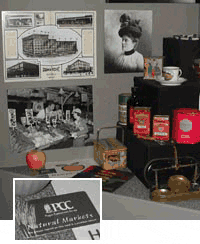Letters to the editor, July 2002
This article was originally published in July 2002
Diaper debate continues
Hello from the UK! I am not a member, but my attention has been drawn to your recent issue of Sound Consumer, as there is a link to my site (www.thenappylady.co.uk).
On the subject of Superabsorbent polymers (SAPs) and disposable diapers, I would like to mention that my site has been recently updated to include all current information. One project I have been involved in is communication with the disposable manufacturers’ trade association to ensure more balanced reporting about diaper issues, both cloth and disposable.
Re: the difference between Tushies and Nature Boy & Girl diapers, consumers need to decide whether chemical or environmental issues are more important for them.
Tushies categorically makes no environmental claims about their diapers (I have asked), as they are marketed on an anti-chemical stance. This means that they have the same landfill implications as conventional diapers.
Nature Boy & Girl make no chemical claims about their product (re: SAPs), but they have approximately twice the biodegradable content of conventional disposables.
Please do not worry about this issue. It is true that disposable nappies are a highly chemical product, and many children react badly to the perfumes or dyes used in their production. However, there is no evidence that (SAPs) are themselves dangerous.
Many cotton nappy users unwittingly scare parents with “information” about disposable nappies which is actually somewhat exaggerated. It isn’t a deliberate thing, but a natural extension of “Chinese whispers,” where someone suggests a possible concern and the next thing you know it is reprinted as hard fact all over the place.
— Morag Gaherty
info@thenappylady.co.uk
No food police
I do not agree with a previous member’s comments that PCC should begin to put some type of warning labels on the shelves carrying certain products.
The writer found the phosphoric acid in a certain soda to be a “serious health risk,” but who should be the judge of that? Will having one soda on a warm sunny day really lead to osteoporosis — maybe yes, maybe no. It is my responsibility as a consumer to make that decision for myself. If I think that a certain product is not up to my standards, I don’t buy it. I don’t need PCC to become the food police!
What about the many other products that PCC sells that could be considered a potential “health risk?” Alcohol products could create a serious health risk, the bakery products, those high calorie/high fat pastries — they could create a serious health risk.
How will PCC decide what foods are objectionable? Personally, I find meat to be a product that creates a serious health risk. I doubt I will see meat removed from your store or a warning label placed in front of the meat counter. Nor do I think that should happen.
I think consumers should be the ones responsible for making their own decisions about what products they buy or don’t buy. The ingredients are listed on the packages for consumers to read freely. We don’t need PCC to police our grocery carts!
— Susan Zagaria, Kent
Produce choices
This is in regards to the question and answer about TSP in Cheerios.
We live in a world and in a community where immune deficiency diseases abound, where our medicines, our food, water and air are all spoiled, tampered with chemically and subject our bodies and minds to toxic substances.
It’s true that it is much simpler to eat Cheerios than decipher information through http://toxnet.nlm.nih.gov. Then again, it is much simpler just not to eat any foods sold in a box, yet that makes no sense either.
I shop at PCC Fremont because I find comfort in knowing that I will be serving my body well with a selection there that is free from poison. Poison, after all, is poison and is toxic and harmful to our beings regardless of those manufacturers that include poison in their food products, call it harmless and then attempt to rationalize it away. Poisons build up in the body just like fat, though bodies do not and cannot rid themselves of poisons as if they were fat. We do not and did not eat Cheerios alone.
I believe that PCC should reconsider the use of its limited shelf space for products that put our minds at ease, add to our well being instead of placing us at risk, even though this may not be popular with consumer rating groups. Cheerios and other products like it can be found in almost every other grocery and convenience store that exists and that is where they belong, if at all.
I shop at PCC and enjoy it immensely because my health is extremely important to me and I don’t want to ingest small amounts of poisons added to the food products I pick off your shelves, but are ok because the matter “IS EASILY DODGED.”
— Greg Gorfkle
PCC in the museum

‘d like to replace my membership card, but under somewhat unusual circumstances that might interest you. I work at the Museum of History & Industry (MOHI) in Seattle and we recently opened an exhibit entitled Metropolis 150, which explores the last 150 years of history in the central Puget Sound region. The exhibit is organized by themes and in the Venture thematic section, we wanted to include PCC among the dozens of interesting retail stories in metropolitan Seattle. The outcome is that my PCC membership card is in the exhibit, used as an artifact — and I need another.
— Lorraine McConaghy
